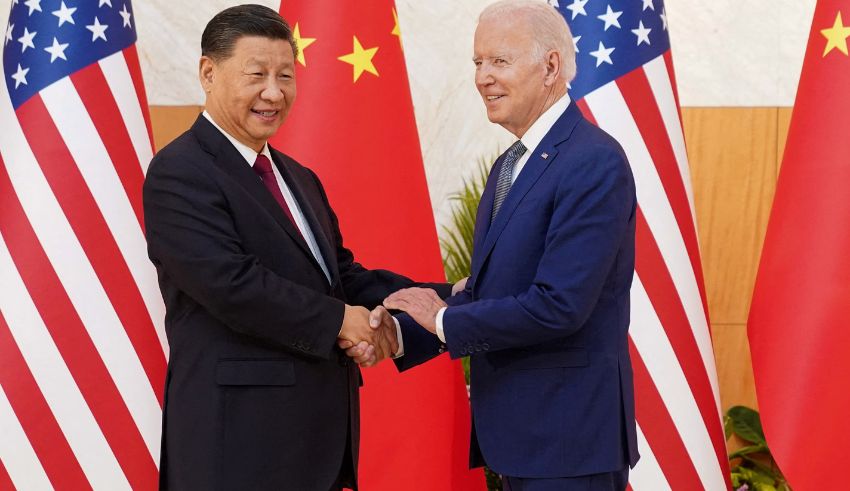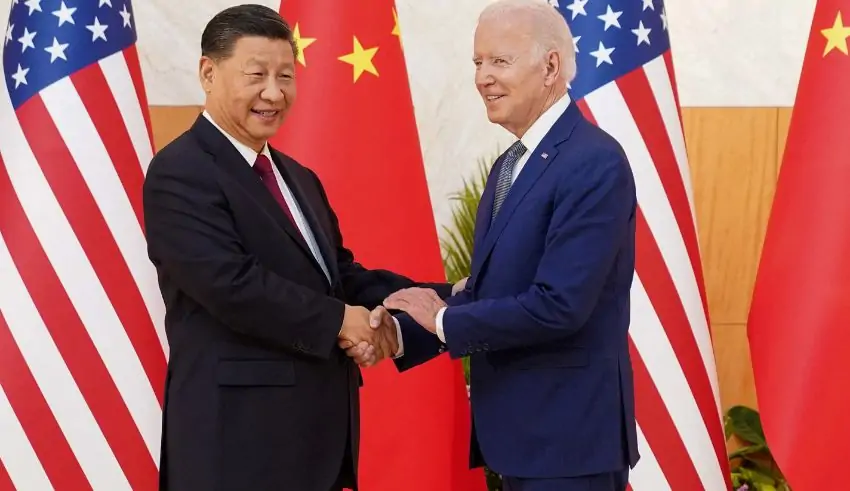

(C) Slate.com
The world’s attention has been drawn to the recent announcement of an anticipated summit between chairpersons Xi Jinping and Joe Biden in May. This follows numerous hours of violent negotiations in Washington between elderly US diplomats and Chinese Foreign Minister Wang Yi. It would be impossible to overestimate the significance of this diplomatic effort — the first visit to Washington by a Chinese foreign minister since 2018 signifies a fresh effort to heal the rift between the two countries.
The likelihood of a Biden-Xi summit inspires both hope and skepticism in the current global climate, which is characterized by rising tensions and competitiveness between the US and China. Let’s examine the benefits and dangers of this kind of conference.
The foundation of conflict resolution is diplomacy. The willingness of both countries to have a conversation is encouraging in and of itself. The only viable solution to the profound policy disagreements that exist—from economic imbalances to human rights concerns, territorial conflicts in the South and East China Sea, and military-to-military channels—is diplomatic engagement.There is a chance to discuss these urgent issues, make intentions clear, and look for areas of agreement during a Biden-Xi summit. “It’s better to talk than to fight,” as the saying goes, and these kinds of conversations can help keep miscommunications from turning into disputes.
There are dangerously high expectations for the meeting. In order to manage tensions and preserve stable relations, the Biden administration believes that direct leader-level communication with Xi is essential.
But history has taught that diplomacy is a slow process, and concrete results from these kinds of high-stakes negotiations are never assured.
The danger here is that, in the event that the summit yields no significant outcomes, trust may be further damaged and disappointment on both sides may occur. With all eyes on Washington, doubts about the effectiveness of diplomacy in resolving complicated issues in the US-China relationship may grow if tangible agreements are not reached.
The US-China relationship now has a new dimension as a result of recent developments like the Israel-Hamas conflict. Beijing is being looked to by Washington to utilise its clout with Iran to stop the Middle East crisis from getting worse and turning into a larger conflict. Wang discussed this matter in his discussions in Washington, bringing attention to the possibility of collaboration on a larger international scale.
China’s engagement in resolving Middle East problems highlights the necessity of teamwork in handling global issues. Positive collaboration on a range of global concerns may be facilitated by the Biden-Xi summit.
There is a long list of issues that the US and China are concerned about. A few instances include cyberwarfare, territorial disputes, human rights violations, and trade issues. These are complex, diverse issues that will take time to resolve, even during a single summit. It might not be possible to fully resolve every issue in a single meeting because they all demand careful negotiation and compromise.
The dangers are found in how deep and intricate the issues are. It is important for both parties to moderate their expectations because a summit cannot address every issue.
In summary, the anticipated Biden-Xi summit is an important step in the direction of stabilising the US-China relationship. Though diplomatic engagement appears promising, it carries the risk of inflated expectations. Both leaders should take into account the difficult past shared by both countries as well as the complexity of the current situations when they sit down to talk about their differences. The capacity of the US and China to identify areas of agreement and expand on them, while realising that long-term solutions will take time and patience, will ultimately determine whether or not the summit is successful.
NextRise 2025-the biggest startup and tech event in Asia-is ready to take place in Seoul on June 26-27 at COEX,…
On this reunion occasion marking 20 years after their debut, the anticipation of the fans seems to be reaching greater…
South Korean boy band RIIZE is returning to Singapore on January 24, 2026 as part of their “RIIZING LOUD” Asia…
Experience Japan’s longest running all-night rock festival, RISING SUN ROCK FESTIVAL 2025 in EZO, with incredible acts, a wealth of…
United States Immigration and Customs Enforcement conducted audits of three Denver cleaning companies, leading to more than $8 million in…
Cricket fans, rejoice! The Olympic Council of Asia (OCA) has confirmed that cricket will be part of the 2026 Asian…
This website uses cookies.
Read More